News feed
Sold-out Kick-off event at the Danube Cup
2023. 04. 28.The 2023 Danube Cup Kick-off event was informative, useful and entertainingly thought-provoking at the same time, thanks to comedian and businessman Gergely Litkai.
The organisers could have put up a "full" sign on the door of room B404 in the Q building at the start of the event. The heightened interest on that Friday afternoon was probably due not only to the topic, but also to one of the speakers, the founder and owner of Dumaszínház, Gergely Litkai. This year's first event of the seven-year-old Duna Cup pitch competition, once only between students of BME and Corvinus University, was the opening of an international series run by a social enterprise.
This year's Danube Cup Kick-off was opened by Anikó Grad-Gyenge, vice-dean for Science and Innovation of the Faculty of Economic and Social Sciences at BME. In her welcome speech, she briefly summarised how the initiative between the two traditionally competing universities on the two banks of the Danube has become a series of events assessing international student innovations. Although the official name of the event is "Kick-off", she and her colleagues have been working for a long time to make this year's programmes a success.

Pál Danyi, Associate Professor of the Department of Management and Business Economics of the Faculty of Economic and Social Sciences at BME, and co-founder of the Danube Cup, said that in the past 7 years, 70 teams from 8 universities have participated in the competitions, and their performances have been followed by 10,000 social media shares. The competition has become an icon in the startup ecosystem in just a few years. Today, it has not only gone international, but in line with its theme, it has become a social enterprise three years ago. "We are an international network and an international system of connections between teachers, students and researchers. Last year, together with 10 institutions, we submitted an Erasmus+ application, and if we win, we will do nothing less than offer joint international courses to students at 8+ universities. One of our greatest successes would be to achieve that Central European startups are created by students from different universities" - said Pál Danyi, introducing the audience to the plans for the near future.
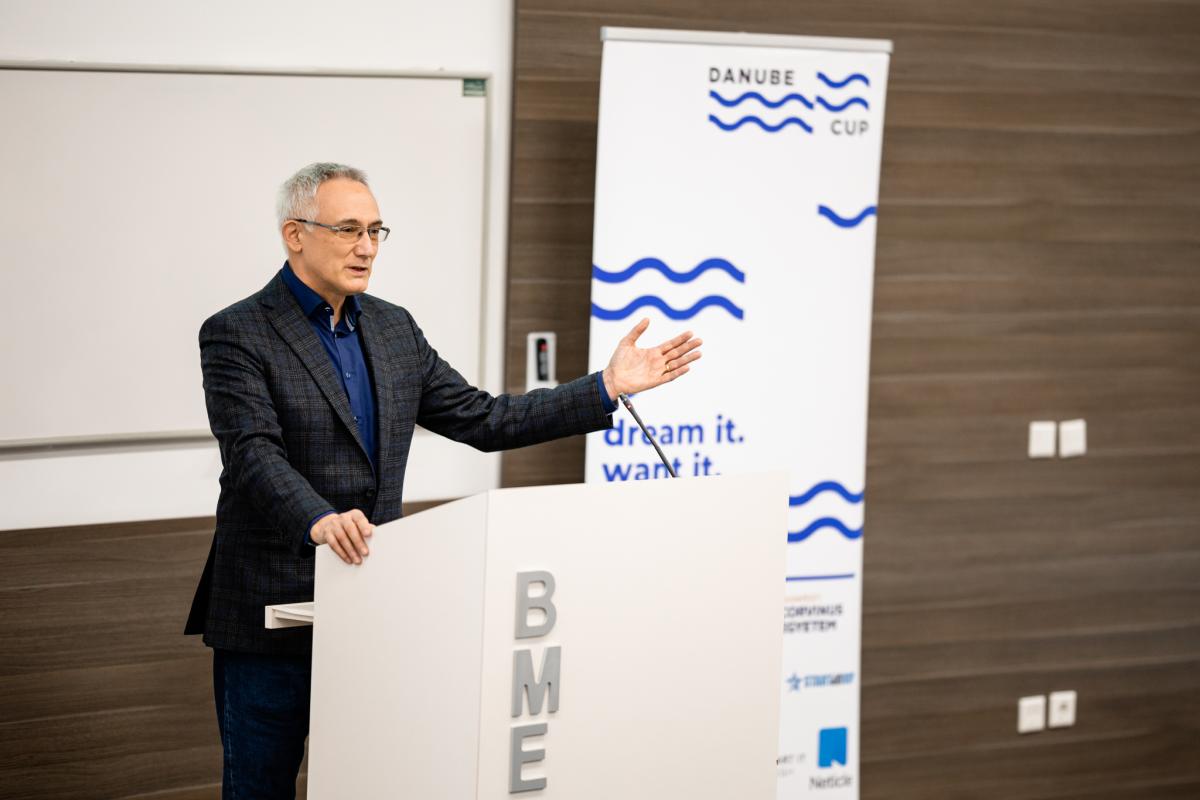

Interest in the competition shows that it can be expanded further, with universities from other countries expressing their interest to collaborate on a monthly basis. The level of attention already requires the introduction of the Danube Cup brand. The aim is to build an international business that has a place in Central European education and startup life. This requires both money and very active help from our colleagues. Fortunately, in recent years, many Hungarian businesses have recognised the value of supporting this initiative.
|
Partner institutions of the international network of the Danube Cup: Budapest University of Technology and Economics Corvinus University of Budapest University of Belgrade Johannes Kepler University Linz University of Passau Regensburg University of Applied Sciences Vienna University of Economics and Business |
Pál Danyi said, "We aim to be the number one academic network in Central Europe in the education of enterprise development. Our mission is nothing less than to provide a university network to educate and support the entrepreneurs of the future, not only the students, but also their teachers". At the end of his presentation, Pál Danyi drew the attention of the participants to the five-part booster programme, where participation only brings benefits and extra skills to enterprising students. He added that teachers of the Danube Cup have a wealth of experience, having worked with more than 100 teams to develop and implement their ideas.

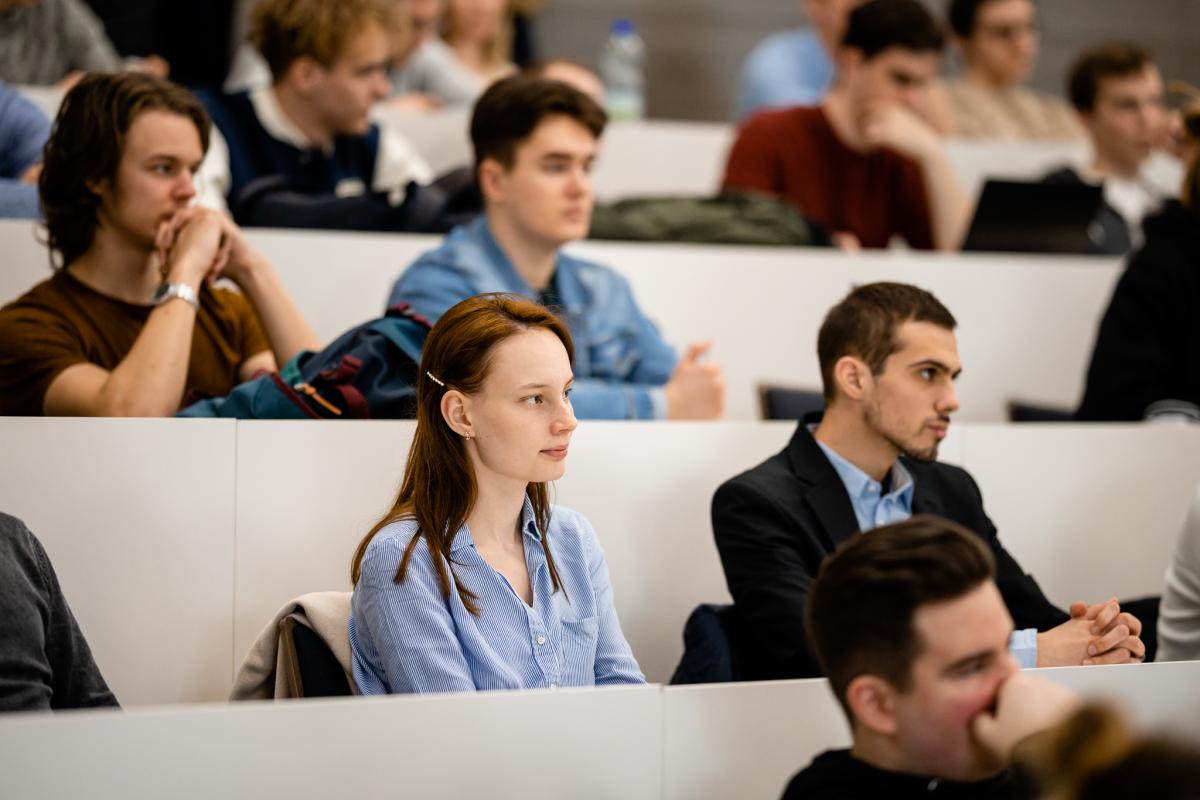
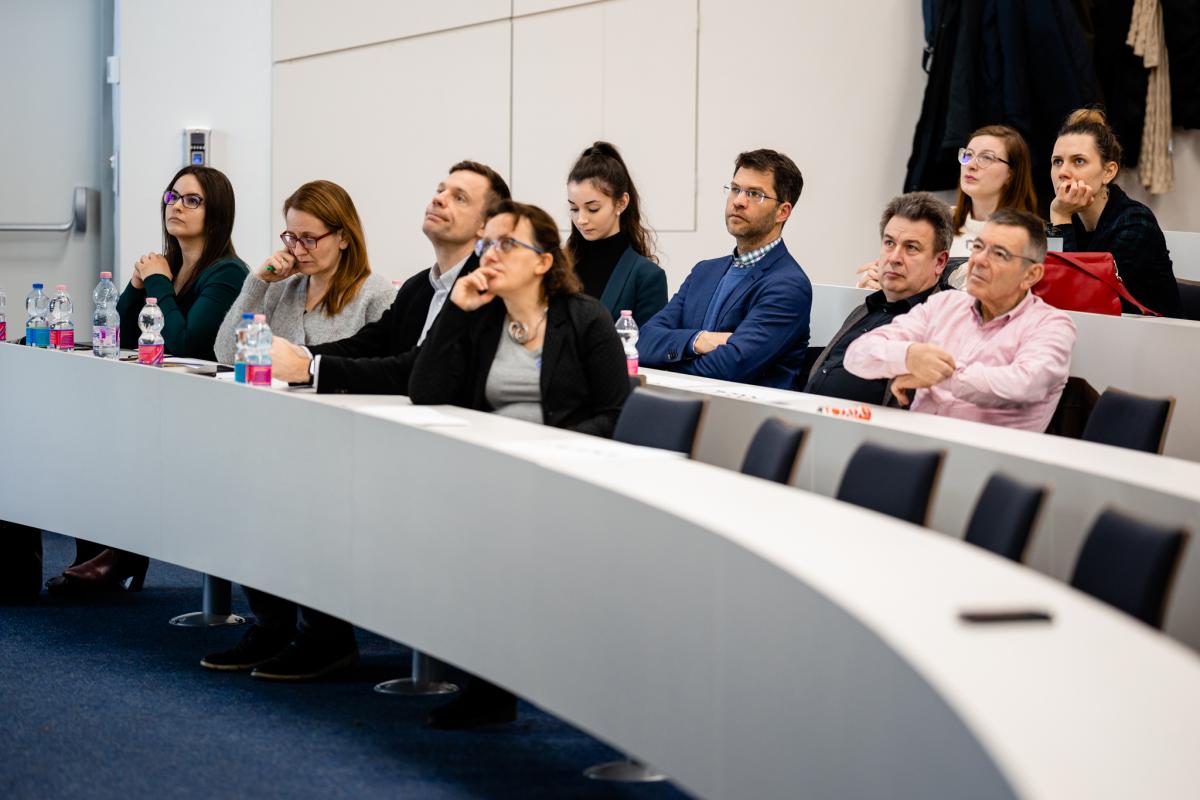
János Vecsenyi, Professor Emeritus of the Department of Management and Business Economics of the Faculty of Economic and Social Sciences at BME, and co-founder of the Danube Cup, spoke first about the success of online marketing. "A week before the event, only three people registered, but today the auditorium is full, which means about 70 people in attendance," said the professor. In addition to recounting his career (he studied at BME and started teaching at Corvinus) he also included the history of the Hungarian education of enterprise development and the advice of prominent Hungarian entrepreneurs in his presentation, the main theme of which was the history of the Danube Cup. The idea for the pitch competition came from one of his trips overseas, from the concept of the traditional inter-university competition in Anglo-Saxon countries, and the realisation that without technical knowledge, knowledge of economics is worth little, and vice versa. This realisation inspired the first competitions between the two universities. "For those who are starting as entrepreneurs now, it may not be the best time, but the experience is that once you start an enterprise, you are likely to continue. University pitch competitions are all about extra knowledge and novelty. It is important that the invented product is also useful, and not just a means to create demand, as in the fashion industry. In today's chaotic world, consumers need more and more things, and businesses need to provide solutions for that. At the same time, don't forget that a business has to generate revenue, it has to make money" - advised Professor János Vecsenyi in his presentation.
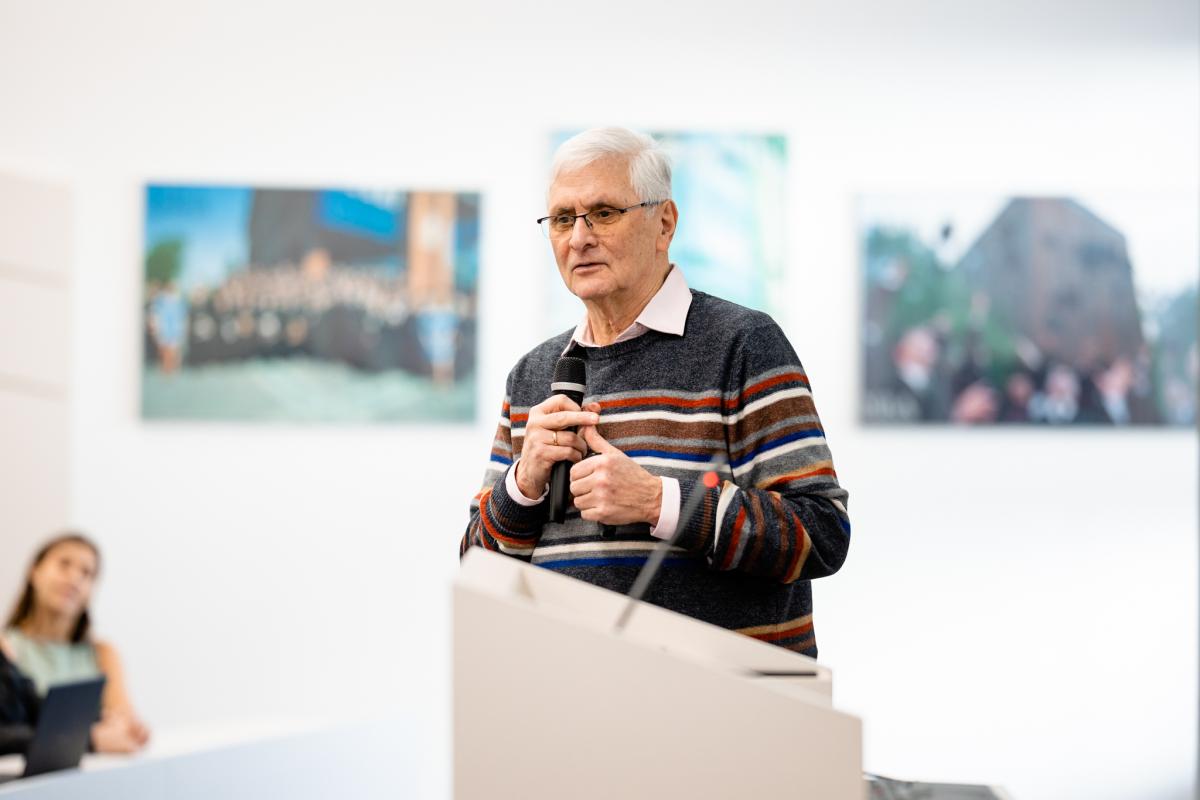
The star guest of the event was Gergely Litkai, founder of Dumaszínház. Personal stories, practical experiences, philosophical and economic philosophical reflections on the startup ecosystem, becoming an entrepreneur, life as an entrepreneur, and of course a lot of humour were interspersed throughout the hour-long presentation.
Some thoughts from the presentation, about the world in general: before starting a business, it is worth thinking about the world we live in. We know too much about the world but understand too little, and what we do understand we don't always believe. We do not hope that what we do will affect what we feared. We tend to think that our environment has always been the way it is now, but it is not. It is dying fast, so the most important task is to achieve a paradigm shift, which is needed to give businesses a place to operate. The goal of humanity should not be to increase efficiency, but to survive. The age of efficiency must be replaced by the age of resilience. Resilience is the ability of a system - be it an individual, an organism, an ecosystem or even a type of material - to adapt successfully to strong, ever-changing or even shock-like external influences. This is how today's startups should be. From time to time, serious topics were punctuated with jokes, ensuring a good atmosphere for the audience.
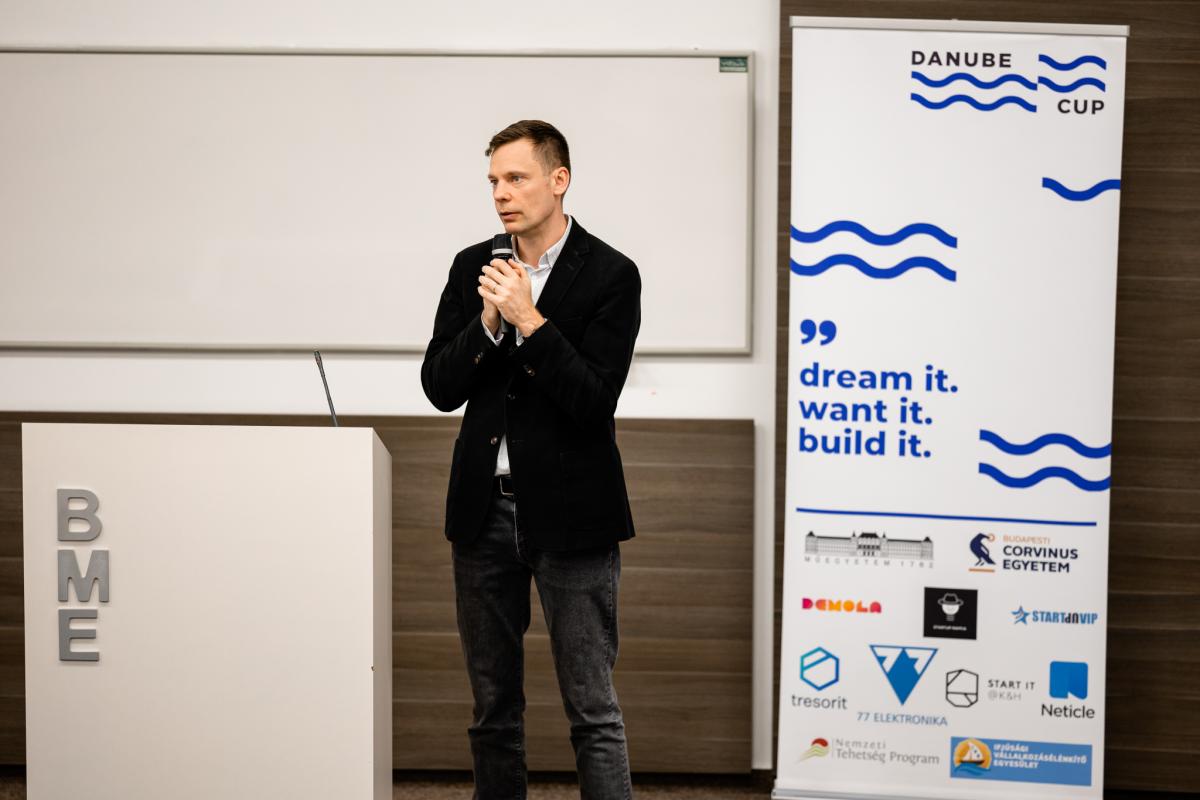
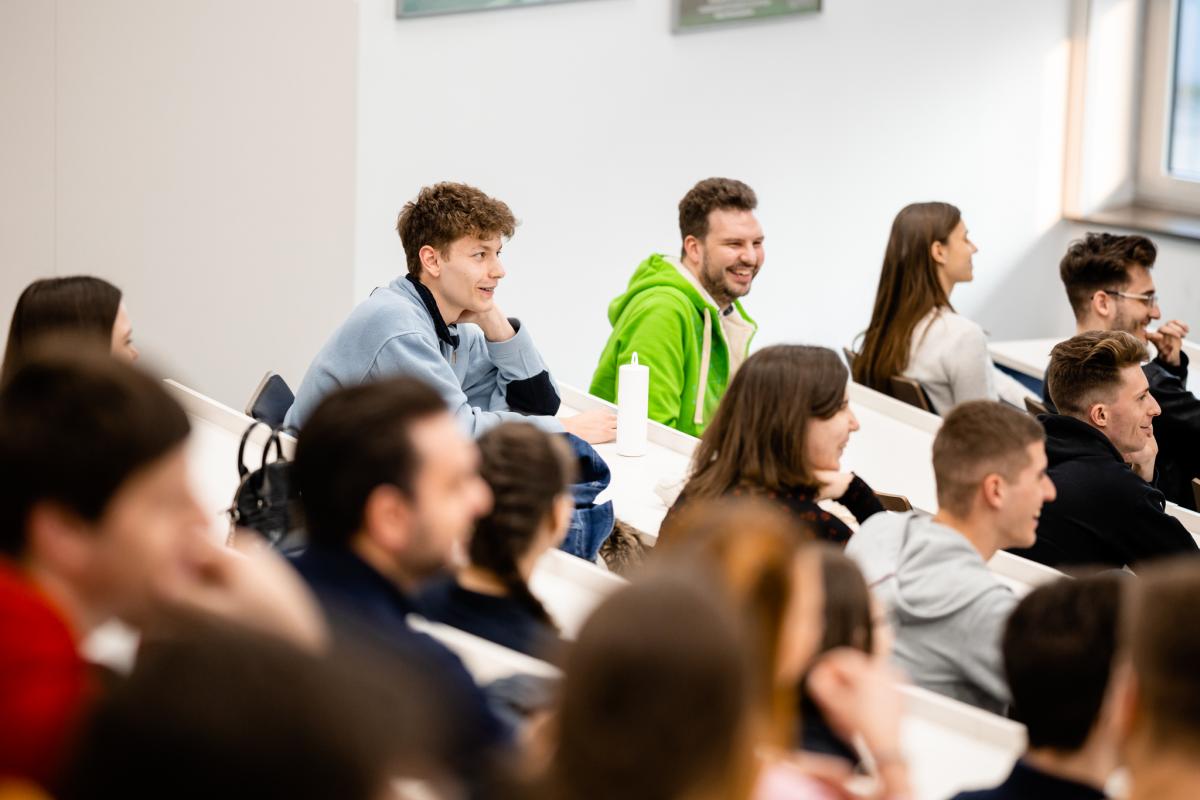
Personal stories and experiences for budding entrepreneurs: The founder of Dumaszínház did not promise anyone that Central and Eastern Europe was a land of opportunity, an entrepreneur's paradise. Hungarian society is highly individualised, people are lonely, sad, and the majority of society has little self-confidence. Risk appetite is low, which is also not conducive to entrepreneurship. Instead of creative work, we do a lot of middle-level intellectual service. For example, people who work for big international accounting firms say: what I earn here is enough, why should I start an enterprise and take a risk? “The world we managed to create since the transition into democracy is not the world of startup generations, but a combination of the world of Zsigmond Móricz with Black Mirror" - Gergely Litkai drew the humorous, but sadly true conclusion.
How should the idea be? Be lovable in the long run. Love it, and don't just see money in business. It is worthwhile and necessary to think ahead about what the company will look like when it starts to grow? Do you want to bring in external funding? Dumaszínház tried the franchise model, but in the end it stayed being operated independently. It has entered the international market and then withdrew from some places. However, they have rejected the use of external funding from the beginning, believing in organic development as a key to sustainability. "It's important to choose well who you start a company with. If you made the wrong choice, try to buy them out quickly before it costs too much. Whoever you work with, should add something to it. And if somebody doesn't add anything to it, they have to be given the sack."
What makes a good entrepreneur? They are almost exactly like a good comedian.
More resilient than 10 years ago, handles stress better and makes good decisions under pressure. That's why our psychological state is so important in this fast-changing world, and needs to be addressed at universities. It is worth learning more skills that you will need later on as an entrepreneur, manager or even employee. And no university prepares you for this. You need to be able to deal with failures, to be able to cooperate, to help others when they get into trouble. The result of the age of efficiency is a complete lack of solidarity among people today. Focused diligence is needed. Acting skills are needed, because a leader must be able to motivate their team. The need for renewal and courage are indispensable, because without them, there can be no enterprise. It is worth being kind, being nice to those who are in some way vulnerable to us. Transparency within the company is also important. Gergely Litkai's own experience is that the business works better if there are no secrets surrounding wages. Adaptation is necessary because "rigidity" is dangerous in a business. At Dumaszínház, 30 strong individuals work together, and everyone wants to take their own direction. For Gergely Litkai, the amoeba tactic has worked: there are boundaries, but they are constantly changing.
Gergely Litkai's experiences were worth listening to, if only because the 20-year-old Dumaszínház has achieved considerable success in the entertainment industry. It is the largest club in Central Europe, was the most visited theatre in 2021, according to the Central Statistical Office, and has 295,000 followers on Facebook.
It was surprising to hear from a comedian with a degree in law how important he thinks mathematics is, not in relation to accounting, but to creativity. "Mathematics helps us understand the world. Logic and a rational approach are essential in a world that is changing at a brutal pace. Maths provides the method of thinking that can link and synthesise a previous idea with a solution to a current problem. This is the kind of creativity needed to run a successful business."
At the end of the almost one-hour long startup stand-up, Gergely Litkai highlighted again that today's startups should start a business based on value, not on interest. People should love what they do, because this way as an entrepreneur they will have a good life instead of pretty graphs. He concluded by saying that "entrepreneurship is great, it is much better than gambling, which quickly becomes an addiction. I wish that you gain new friends, international connections and achieve success".

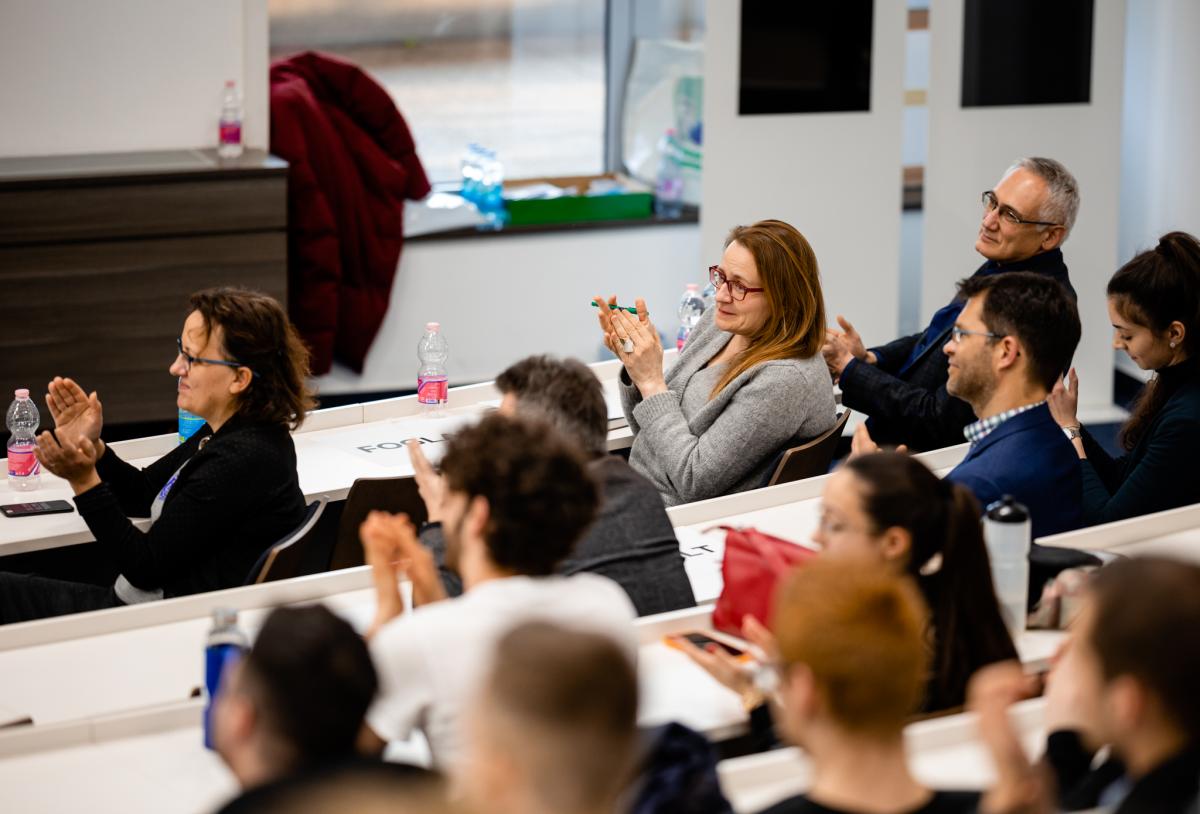

The moderator of the event, psychologist Blanka Balogh, then called on the last speaker, Loretta Huszák, assistant professor at Corvinus University of Budapest, who spoke about the events of the coming months and encouraged all participants to register for the preparatory training preceding the national trials.

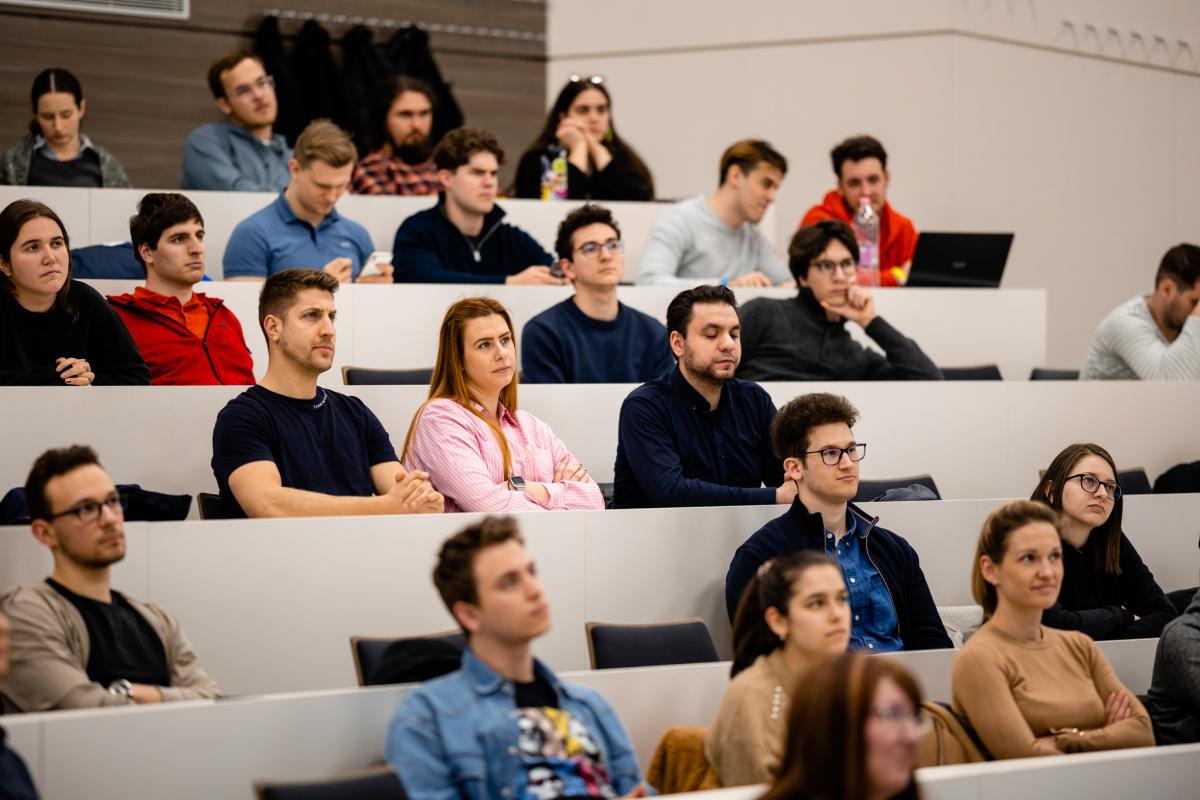

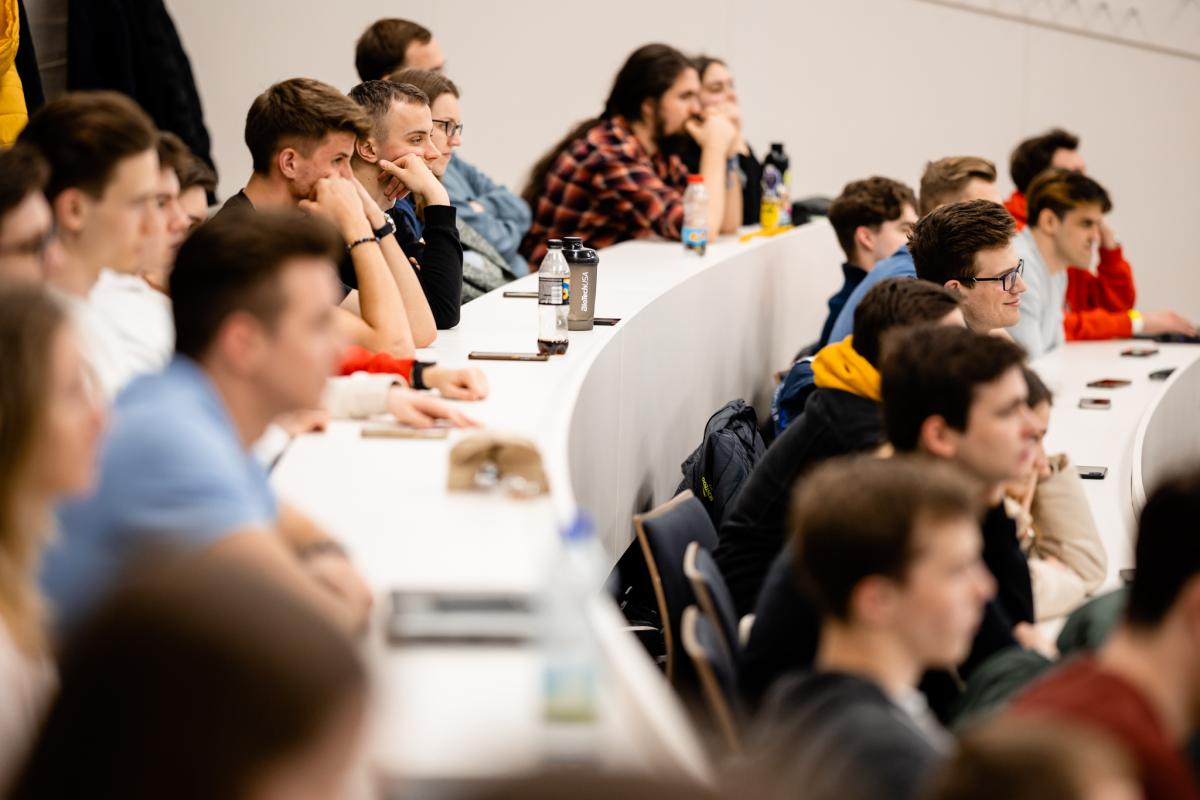
Interested students combined eating pizza together with the opportunity for personal consultation: they initiated dialogues with the founders of the Danube Cup and the staff of the social enterprise.
KJ-TZS
Photos: B. Geberle
